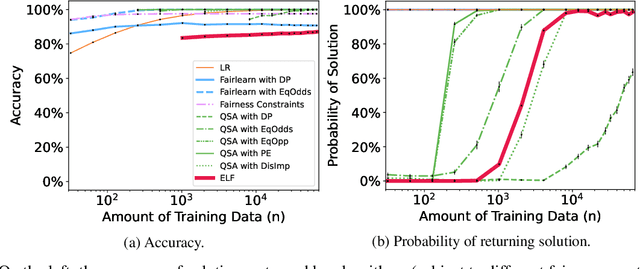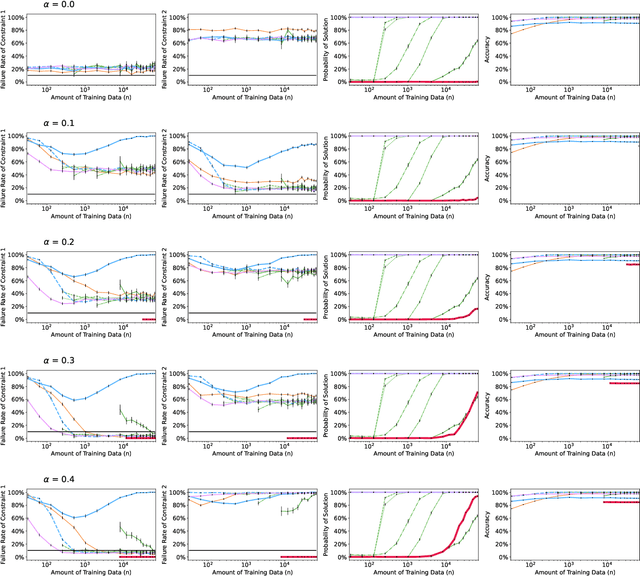Blossom Metevier
Matched Pair Calibration for Ranking Fairness
Jun 20, 2023Abstract:We propose a test of fairness in score-based ranking systems called matched pair calibration. Our approach constructs a set of matched item pairs with minimal confounding differences between subgroups before computing an appropriate measure of ranking error over the set. The matching step ensures that we compare subgroup outcomes between identically scored items so that measured performance differences directly imply unfairness in subgroup-level exposures. We show how our approach generalizes the fairness intuitions of calibration from a binary classification setting to ranking and connect our approach to other proposals for ranking fairness measures. Moreover, our strategy shows how the logic of marginal outcome tests extends to cases where the analyst has access to model scores. Lastly, we provide an example of applying matched pair calibration to a real-word ranking data set to demonstrate its efficacy in detecting ranking bias.
Enforcing Delayed-Impact Fairness Guarantees
Aug 24, 2022



Abstract:Recent research has shown that seemingly fair machine learning models, when used to inform decisions that have an impact on peoples' lives or well-being (e.g., applications involving education, employment, and lending), can inadvertently increase social inequality in the long term. This is because prior fairness-aware algorithms only consider static fairness constraints, such as equal opportunity or demographic parity. However, enforcing constraints of this type may result in models that have negative long-term impact on disadvantaged individuals and communities. We introduce ELF (Enforcing Long-term Fairness), the first classification algorithm that provides high-confidence fairness guarantees in terms of long-term, or delayed, impact. We prove that the probability that ELF returns an unfair solution is less than a user-specified tolerance and that (under mild assumptions), given sufficient training data, ELF is able to find and return a fair solution if one exists. We show experimentally that our algorithm can successfully mitigate long-term unfairness.
Reinforcement Learning When All Actions are Not Always Available
Jun 05, 2019



Abstract:The Markov decision process (MDP) formulation used to model many real-world sequential decision making problems does not capture the setting where the set of available decisions (actions) at each time step is stochastic. Recently, the stochastic action set Markov decision process (SAS-MDP) formulation has been proposed, which captures the concept of a stochastic action set. In this paper we argue that existing RL algorithms for SAS-MDPs suffer from divergence issues, and present new algorithms for SAS-MDPs that incorporate variance reduction techniques unique to this setting, and provide conditions for their convergence. We conclude with experiments that demonstrate the practicality of our approaches using several tasks inspired by real-life use cases wherein the action set is stochastic.
 Add to Chrome
Add to Chrome Add to Firefox
Add to Firefox Add to Edge
Add to Edge